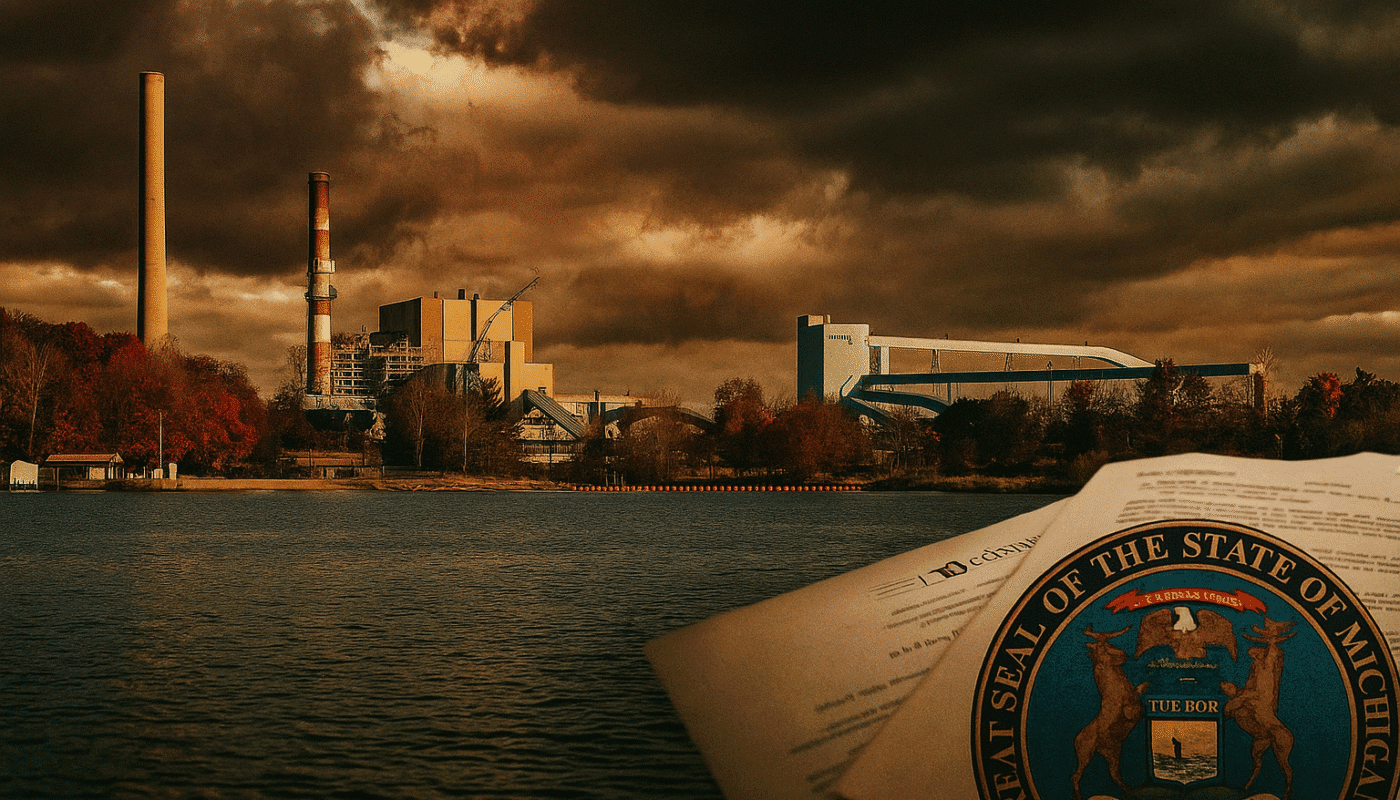Attorney General Dana Nessel says federal intervention in Michigan’s energy planning is unlawful, costly, and politically motivated.
Michigan’s Attorney General Challenges DOE Overreach on Coal Plant Decision
In a sweeping legal maneuver filed Wednesday, Michigan Attorney General Dana Nessel formally petitioned the U.S. Department of Energy (DOE) for a rehearing on its May 23 emergency order forcing the continued operation of the J.H. Campbell coal-fired power plant in West Olive, Michigan. The filing alleges the DOE unlawfully invoked emergency powers to reverse a state-approved retirement of the aging facility.
Nessel characterized the DOE’s action as “an arbitrary and illegal order” that imposes significant costs on Michigan ratepayers and undermines a multiyear energy transition plan that includes lower-emission alternatives.
“This unprecedented order declares an emergency without evidence,” Nessel said in a statement. “The only real impact on Michiganders will be financial and environmental harm.”
Federal Action Overrides State Energy Planning Years in the Making
The DOE’s order came just days before Consumers Energy was scheduled to decommission the Campbell plant, a three-unit facility built in the 1960s. The plant had been slated for retirement as part of the utility’s 2021 Integrated Resource Plan (IRP), a filing reviewed and approved by the Michigan Public Service Commission (MPSC) in 2022.
According to court records, the closure was projected to save ratepayers nearly $600 million and had been vetted by both MISO—the regional power grid operator—and multiple state agencies. The utility had already procured alternative power sources and bolstered its reserve margins.
“Consumers’ plan would increase generation capacity and reduce cost,” Nessel’s brief stated, referencing new natural gas plants and battery storage facilities already acquired or in development.
DOE Justifies Emergency Action Using Broad Presidential Authority
The DOE’s order cited Executive Order 14262, issued by President Donald Trump in April 2025, which declared a national energy emergency and urged preservation of coal-fired power for grid reliability. The agency said its emergency powers under Section 202(c) of the Federal Power Act justified keeping Campbell online through at least August.
Critics argue the rationale is thin. The North American Electric Reliability Corporation (NERC) assessed MISO as having an “elevated risk” of power shortages—but not a high or imminent threat. DOE’s own assessment relied on vague language about “tight reserve margins.”
“This is a pretextual declaration of emergency,” the Michigan AG’s filing asserts. “The DOE failed to show any immediate, unforeseen event requiring such intervention.”
J.H. Campbell Plant – Aging, Polluting, and Already Deemed Replaceable
The Campbell facility has long been criticized for its pollution output. According to MPSC filings, it contributes significant emissions of carbon dioxide, sulfur dioxide, and particulate matter. Two of its three units are over 60 years old.
Data from Consumers Energy confirmed the facility was operating well below original capacity due to age and disrepair. Unit 2 was offline as of June, and the plant’s maximum output had dropped from 1,450 MW to just 920 MW.
Despite this, the DOE order directed full operational readiness of all units and encouraged economic dispatch by MISO, a move Nessel contends is not authorized under the statute.
DOE’s Order Reflects Broader Strategy to Bolster Coal Industry
The rehearing request outlines a broader political context. Nessel’s filing argues that the DOE’s action aligns with a national strategy to reverse coal retirements, particularly under Executive Orders signed at a White House event promoting fossil fuel expansion.
The filing quotes a New York Times report from April 2025 describing the administration’s coordinated effort to “revive a struggling coal industry” through regulatory rollback and emergency declarations.
“This is policymaking masquerading as crisis response,” said Christopher Bzdok, Special Assistant Attorney General, in the filing.
MPSC and MISO Reaffirm Michigan’s Grid Reliability
State filings show Michigan’s power supply remains stable. Consumers Energy recently reported a 273 MW surplus for summer 2025. MISO had previously approved Campbell’s retirement after a detailed technical study and confirmed no reliability impacts.
The Michigan AG’s office emphasized that the DOE had neither consulted with state officials nor provided evidence that any reliability threat exists.
“MISO, not DOE, is the grid expert. And MISO already approved this closure,” Nessel wrote.
Broader Context: Legal Precedent and State Authority in Question
Legal analysts note the case may test the limits of federal emergency powers. Courts have historically limited such authority to clear, immediate crises—like hurricanes or war—not policy disagreements.
In the 1978 case Richmond Power and Light v. FERC, the D.C. Circuit held that Section 202(c) was intended for “temporary, unforeseen events.” The Michigan AG argues this principle was disregarded.
Read More Interesting Feature Stories From ThumbWind
- Michigan Feature News Stories – Unveiling the diverse and vibrant people, captivating places, and remarkable events that come together to make the Great Lake State unique.
- Strange Political News – A sarcastic take on official news from around the U.S., exploring the absurdities that often arise in the political landscape.
- Michigan Hometown News – News and events from Michigan’s Upper Thumb region, including community stories, interviews, and cultural updates.
Your Turn – Like This, or Hate it – We Want To Hear From You
Please offer an insightful and thoughtful comment. We review each response. Follow us to have other feature stories fill up your email box, or check us out at ThumbWind News.




